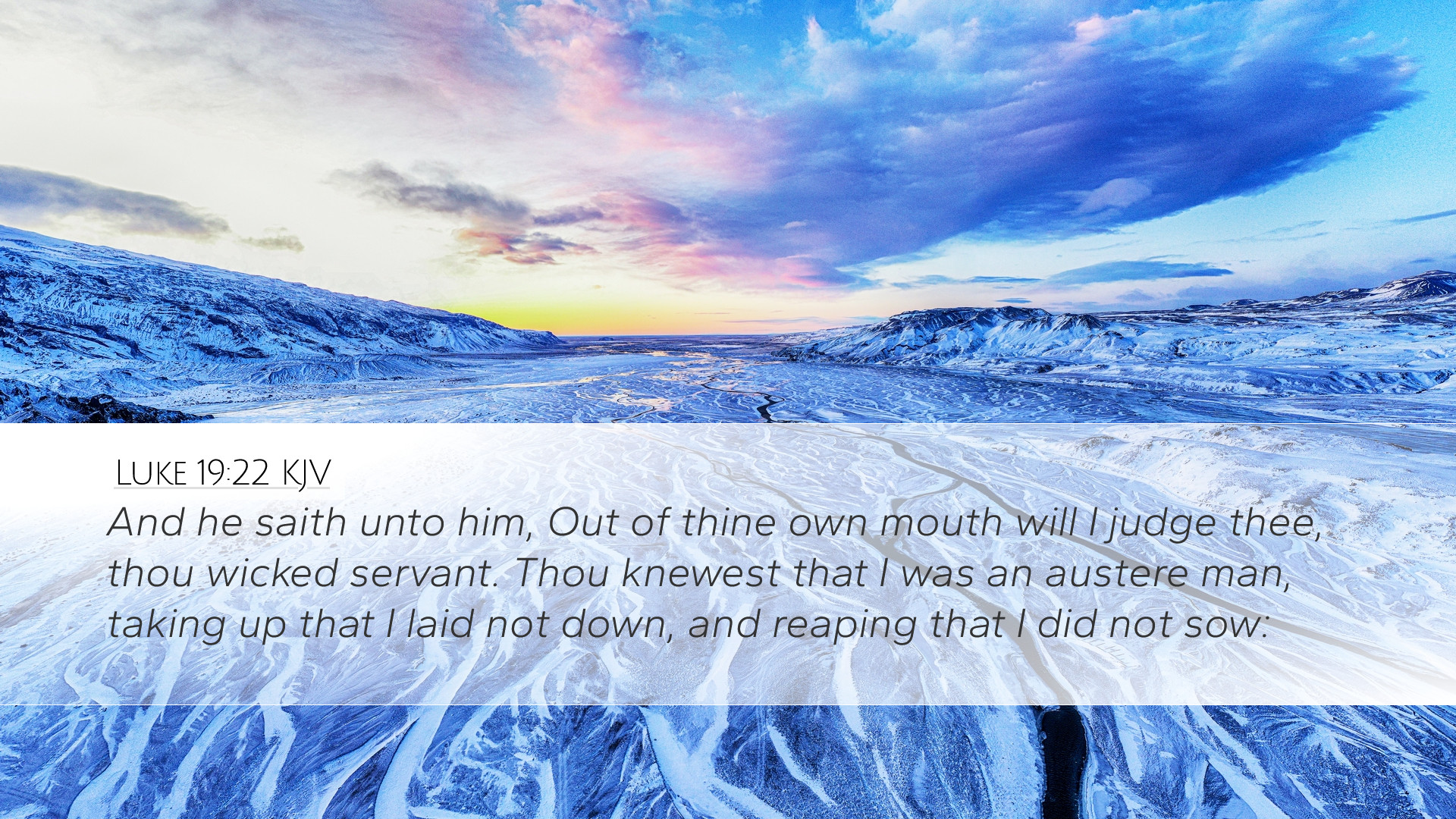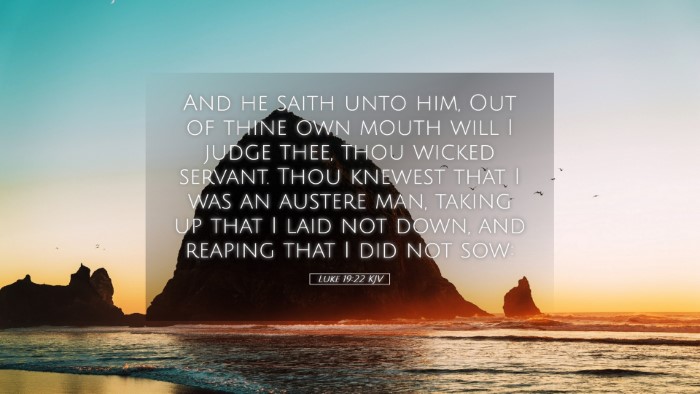Commentary on Luke 19:22
Verse Analysis: Luke 19:22 states, "And he said to him, 'Out of your own mouth I will judge you, you wicked servant. You knew that I was an austere man, collecting what I did not deposit and reaping what I did not sow.'" This verse is part of the parable of the ten minas, where the nobleman represents Jesus Christ, who has gone to receive a kingdom, while His servants are entrusted with responsibilities during His absence.
The Severity of Judgment
Matthew Henry: In this passage, Henry emphasizes the inevitability of self-incrimination. The servant's own words are turned against him, illustrating how our perceptions of God will ultimately determine our fate. The idea resonates with the biblical principle that we will be judged by our own understanding and actions, reflecting the seriousness of our character before God.
Albert Barnes: Barnes draws attention to the implications of being aware of the master's character. The servant claims to know that the master is austere, and this knowledge should have prompted him to act wisely. The emphasis is placed on accountability, suggesting that ignorance is no excuse when one has been taught the ways of their master.
The Role of Understanding in Service
Adam Clarke: Clarke explains that the servant had received sufficient information about the nature of the nobleman and had ample opportunity to act. Therefore, his failure to invest the mina reflects a severe lack of judgment and responsibility. Clarke notes that understanding the parameters of God’s nature should compel us to fruitful action rather than passive disobedience.
Faithful Stewardship
- Stewardship Expectations: Henry suggests that stewardship involves more than mere possession; it entails wise investment and diligent effort. The servant's neglect is indicative of a heart that does not value what has been given.
- Consequences of Inaction: Barnes asserts that God expects a return on His investments. The nobleman's harsh rebuke mirrors the expectations placed upon believers to not only understand their commitments but also to act upon them.
The Nature of God as a Master
Matthew Henry: Henry elaborates on the austere nature of the master, suggesting that it reflects God’s holiness and justice. He points out that a proper understanding of God's expectations should lead us to a zealous and faithful service rather than slothfulness.
Albert Barnes: Barnes expands on the concept of God’s justice being tempered with mercy. Despite the nobleman's austere reputation, there lies an opportunity for service and growth. The servant’s failure to embrace his master’s nature and act accordingly reveals a profound misunderstanding of God’s character.
The Pitfalls of Misconception
Adam Clarke: Clarke warns against the perils of a distorted view of God. The servant's condemnation illustrates that wrongful assumptions about God can lead to disastrous consequences. This serves as a reminder that clarity of faith and right understanding of God’s nature is paramount for effective service.
Practical Applications for Believers
Responsibility in Spiritual Matters: This verse calls for a deep reflection on each believer's responsibilities. Every Christian is entrusted with talents, time, and tools for ministry. Understanding these responsibilities through the lens of divine expectation should lead to proactive engagement in our spiritual duties.
Embracing Accountability: The admonition that the servant's words judged him indicates that we must speak and act according to our knowledge of God's nature—accountability is integral to our walk with Christ.
Conclusion
This text invites pastors, students, theologians, and scholars to contemplate the profound implications of knowing God. Our understanding of God shapes our actions, and as stewards of His grace, we are entrusted to live out our faith diligently. The call is to be responsible servants, ready to invest in the Kingdom faithfully.


